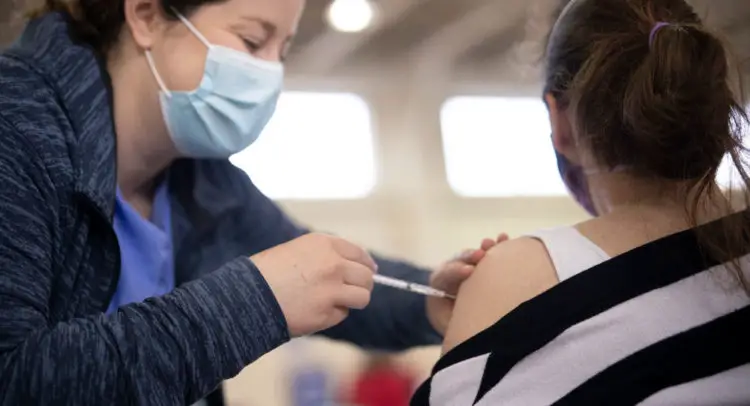WASHINGTON D.C. – The U.S. Department of Labor’s Occupational Safety and Health Administration on Thursday announced a new emergency temporary standard requiring employers to develop, implement and enforce a mandatory COVID-19 vaccination policy.
Under this standard, covered employers must enforce a mandatory COVID-19 vaccination policy, unless they adopt a policy requiring employees to choose to either be vaccinated or undergo regular COVID-19 testing and wear a face covering at work.
OSHA estimates that this rule will save thousands of lives and prevent more than 250,000 hospitalizations due to workplace exposure to COVID-19 over the course of the ETS.
“COVID-19 has had a devastating impact on workers, and we continue to see dangerous levels of cases,” said U.S. Labor Secretary Marty Walsh.
“We must take action to implement this emergency temporary standard to contain the virus and protect people in the workplace against the grave danger of COVID-19. Many businesses understand the benefits of having their workers vaccinated against COVID-19, and we expect many will be pleased to see this OSHA rule go into effect.”
The emergency temporary standard covers employers with 100 or more employees – firm or company-wide – and provides options for compliance. The ETS also requires employers to provide paid time to workers to get vaccinated and to allow for paid leave to recover from any side effects.
The ETS also requires employers to do the following:
- Determine the vaccination status of each employee, obtain acceptable proof of vaccination status from vaccinated employees and maintain records and a roster of each employee’s vaccination status.
- Require employees to provide prompt notice when they test positive for COVID-19 or receive a COVID-19 diagnosis. Employers must then remove the employee from the workplace, regardless of vaccination status; employers must not allow them to return to work until they meet required criteria.
- Ensure each worker who is not fully vaccinated is tested for COVID-19 at least weekly (if the worker is in the workplace at least once a week) or within 7 days before returning to work (if the worker is away from the workplace for a week or longer).
- Ensure that, in most circumstances, each employee who has not been fully vaccinated wears a face covering when indoors or when occupying a vehicle with another person for work purposes.
The emergency temporary standard does not require employers to pay for testing. Employers may be required to pay for testing to comply with other laws, regulations, collective bargaining agreements, or other collectively negotiated agreements. Employers are also not required to pay for face coverings.
While OSHA officials are touting the policy as a way to protect more than 84 million workers from the spread of the coronavirus on the job, some lawmakers are standing in opposition to the new standard.
“While I firmly believe getting vaccinated is the best protection for most against COVID-19, penalizing those who abstain and their employers is not good policy nor is it the role of the federal government,” Senator Pat Toomey said in a release.
“With a fine of $13,650 per violation, the outlined requirements from the Biden Administration will further alienate the skeptical and could easily force an employer that has taken considerable steps to encourage vaccination among its staff to be penalized, cut employees, or even close its doors. I will be joining many of my Republican colleagues in an attempt to revoke this mandate via the Congressional Review Act in hopes of stopping it before it causes unnecessary harm.”
U.S. Representative Glenn “GT” Thompson called the measure “a prime example of blatant federal overreach,” in a release issued late Thursday.
“Small businesses are already struggling to hire employees and cover costs. President Biden’s mandate will only serve to add further strain on our economy, in addition to rapidly rising inflation, skyrocketing energy and transportation costs, and a shortage of both goods and workers,” Thompson said.
“This is a one-size-fits-all response, which ignores the fact that risk of hospitalization and mortality due to COVID-19 infection are not equal amongst our population. Pennsylvanians who are eligible to receive a COVID-19 vaccine should consult their medical professional and make their own choices, not have the federal government dictate their health care decisions.”



